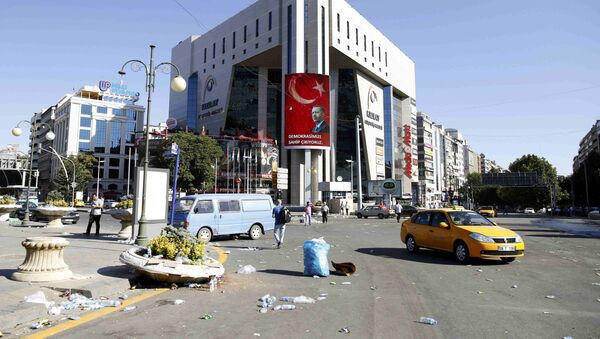"After the constitutional referendum decision passes through parliament, it will be presented to the public. This used to take 90 days, now it is 60 days, but we are unlikely to make it before 2017. The referendum could be held before spring 2017," Bozdag said in an interview with Turkey's Kanal 24 broadcaster.
The main opposition center-left Republican People's Party (CHP) and the pro-Kurdish Peoples' Democratic Party (HDP) oppose a presidential system in Turkey.
Despite vocal foreign and domestic concerns, Turkish President Recep Tayyip Erdogan is poised to hold a referendum to abolish the 1923 constitution and its parliamentary system to complete his executive sweep.
Commenting on the issue, Baskın Oran noted to Sputnik that the presidential or parliamentary system might be applied in any country. However only on the condition that there is an operating mechanism of the division of power.
In Turkey there is no such division, as Erdogan while being a president still de-facto continues to lead the ruling AKP party.
He has also taken under control the judicial power, the most important element in the division of power principle, through the High Council of judges and prosecutors, the expert said.
Hence, Baskın Oran said, Erdogan happens to have in the same very hands the judicial power, parliament and government. He controls the prime minister and can oust him.
Besides, he controls higher educational establishments and mass media. Hence the above discussions are not about the presidential system but about the command system of one and the same person, about Erdogan's personal control system.
However Turkey is an over-developed country for such a system, he noted. If we talk about Bangladesh, Somalia, Afghanistan or even Pakistan, then it makes sense.
In the country with such a developed society and with a multiparty system, there is no further go ahead for the system of power concentration in the same very hands while keeping the country in constant fear.




